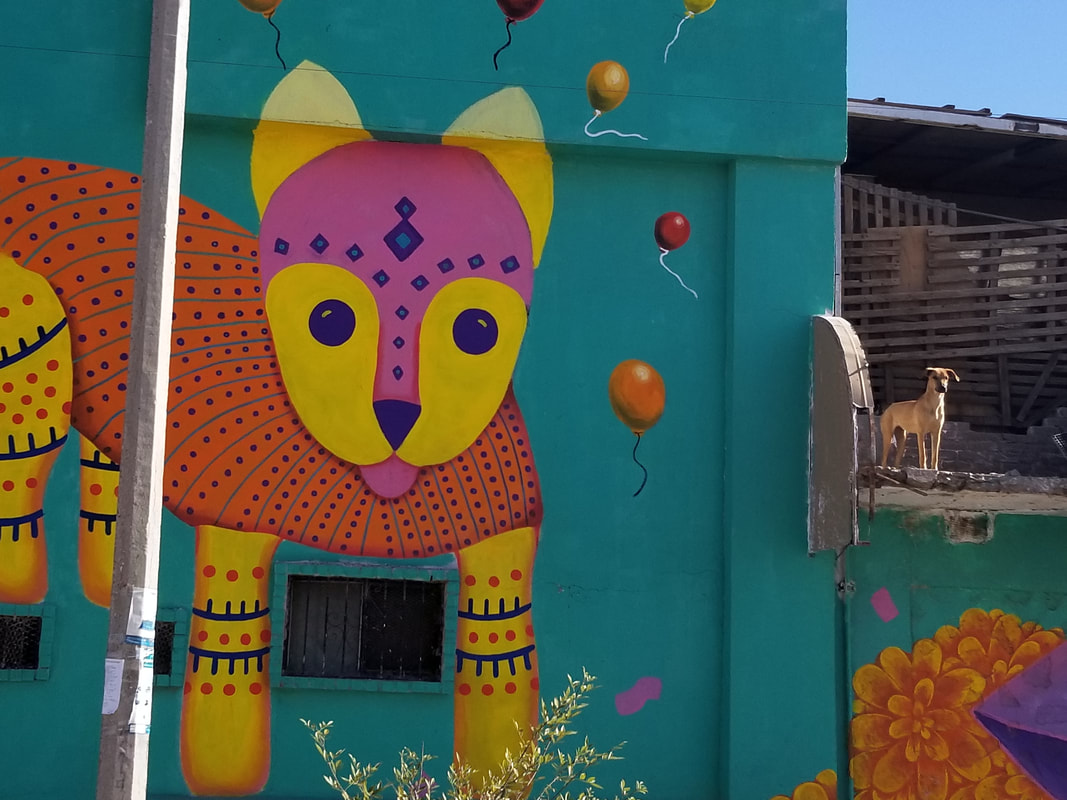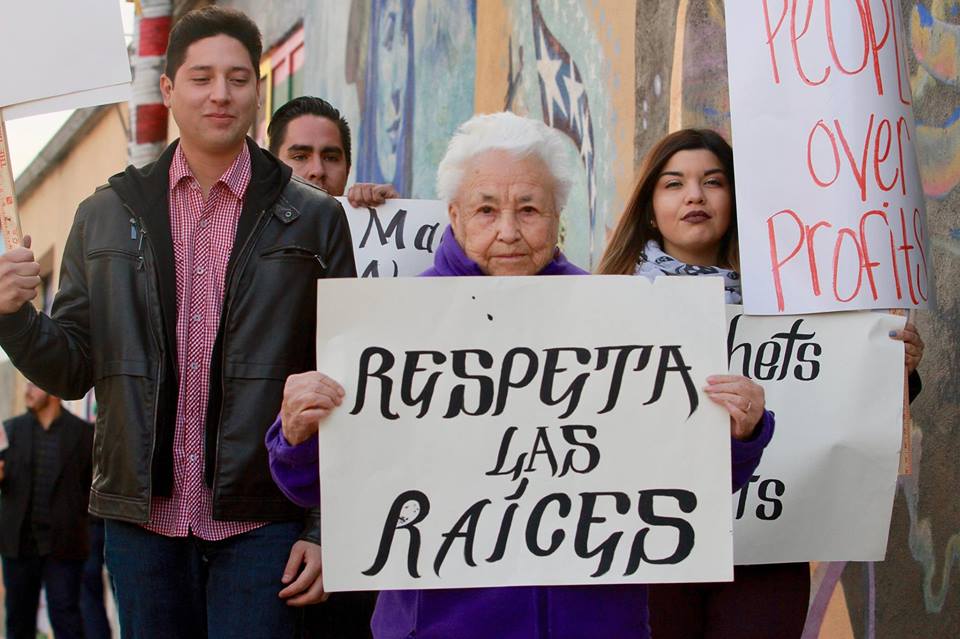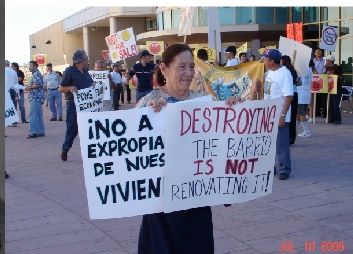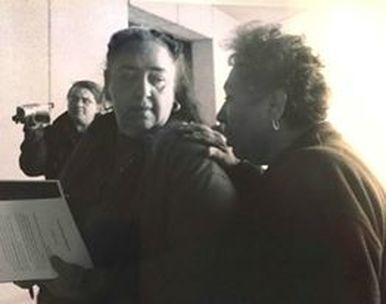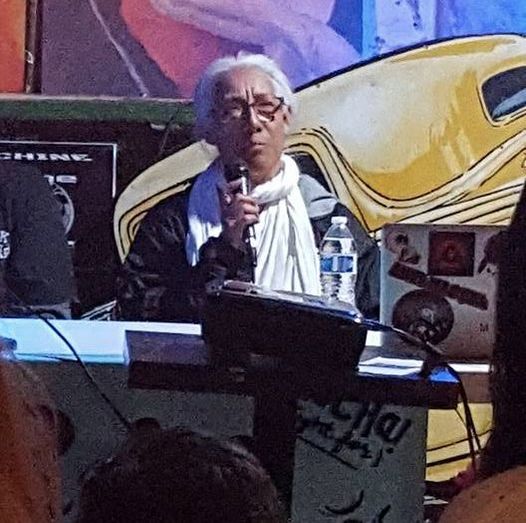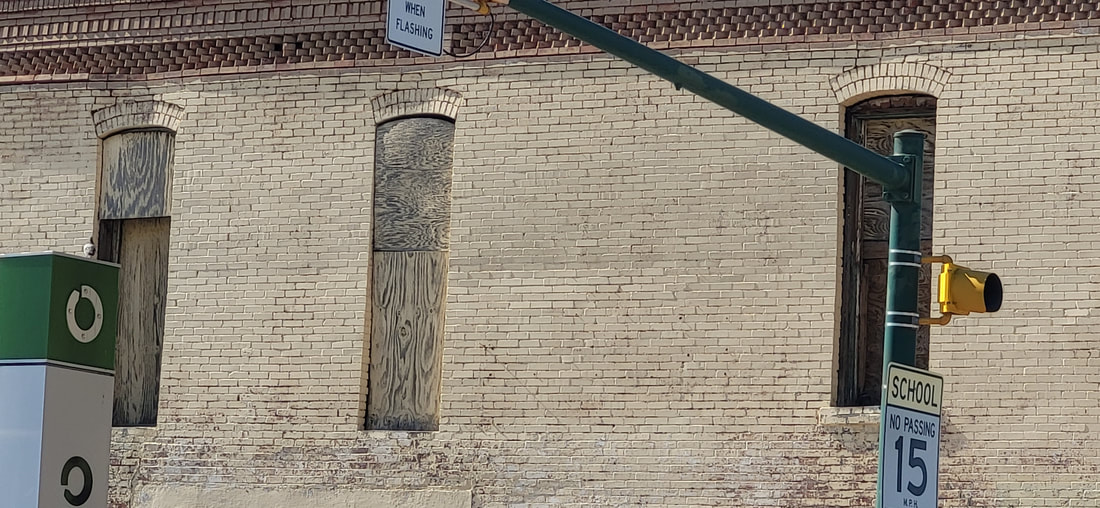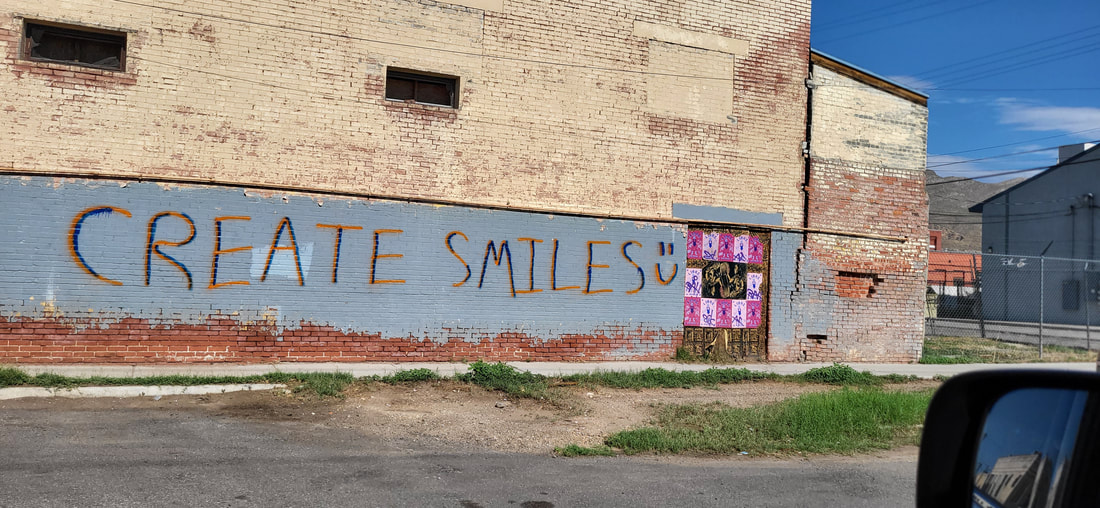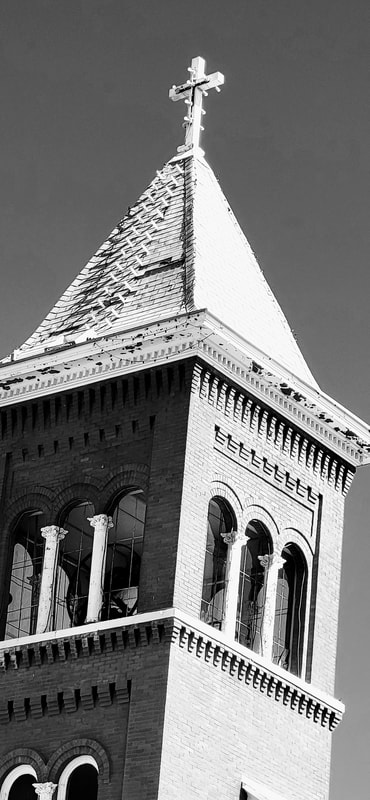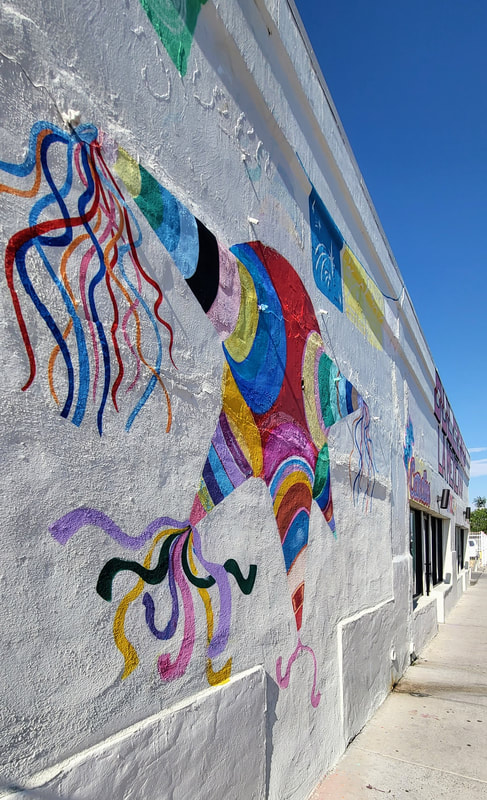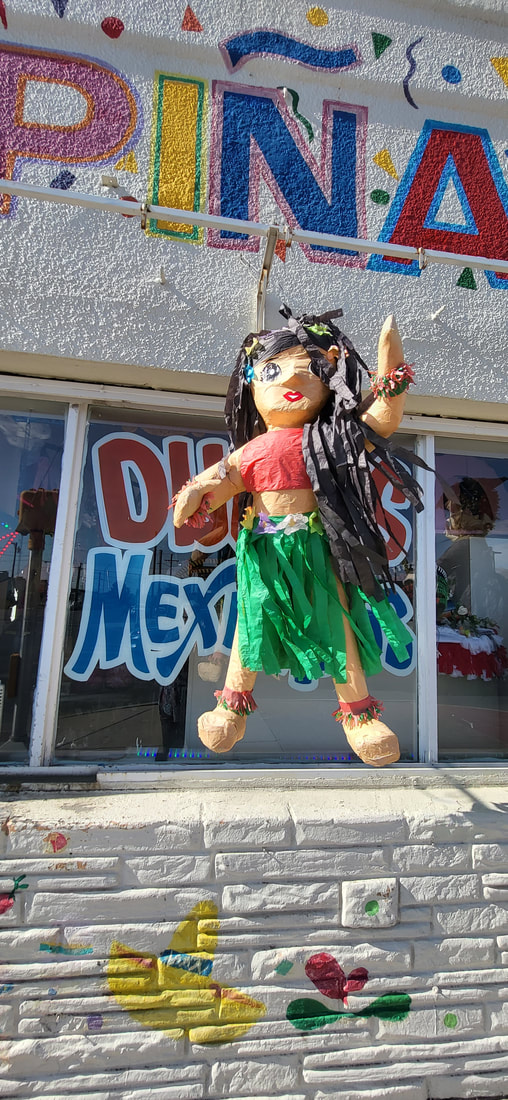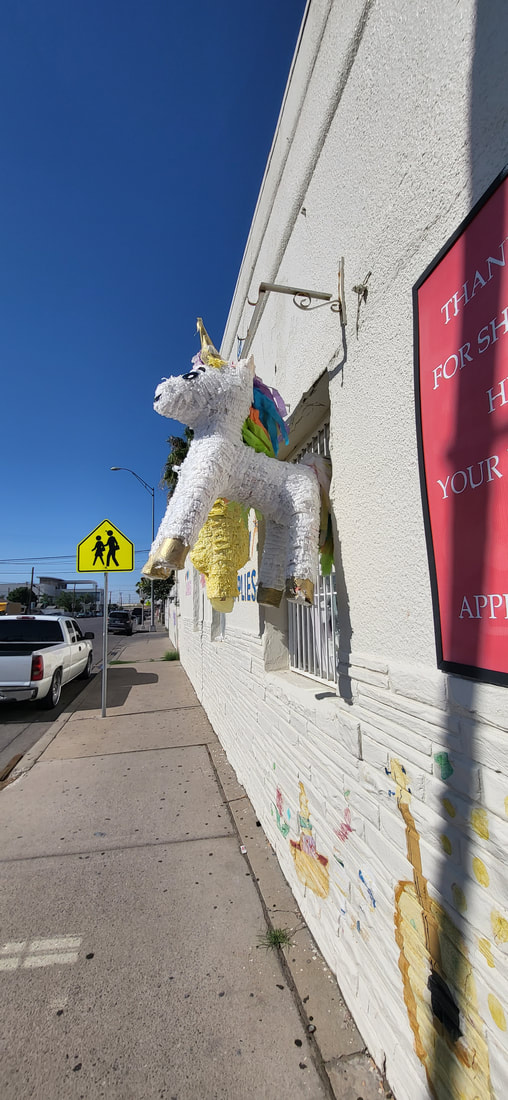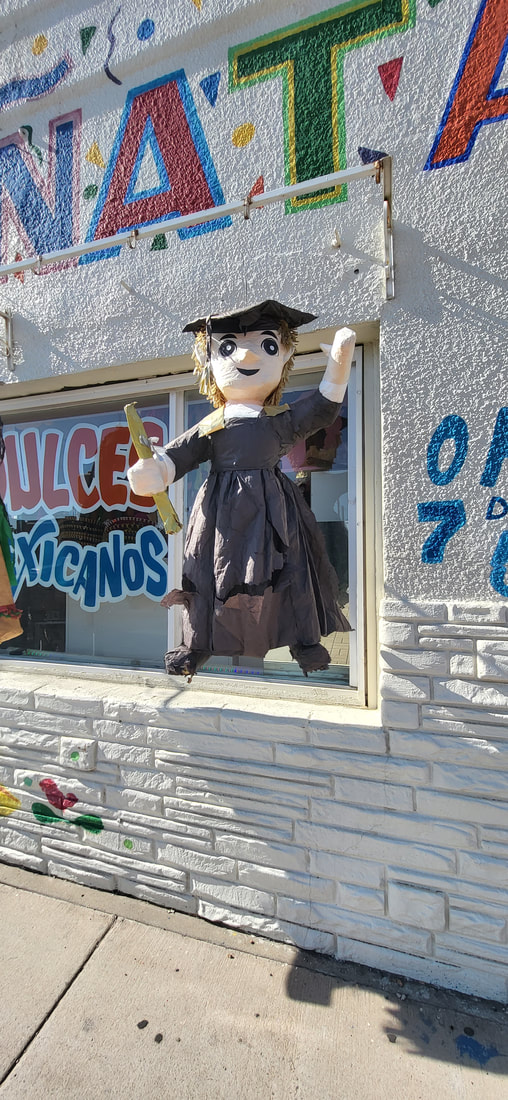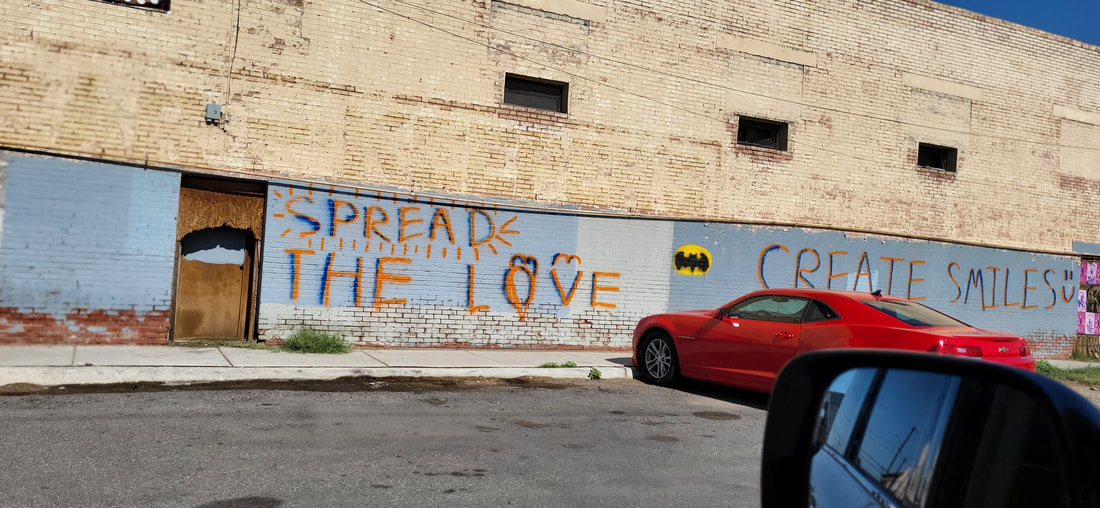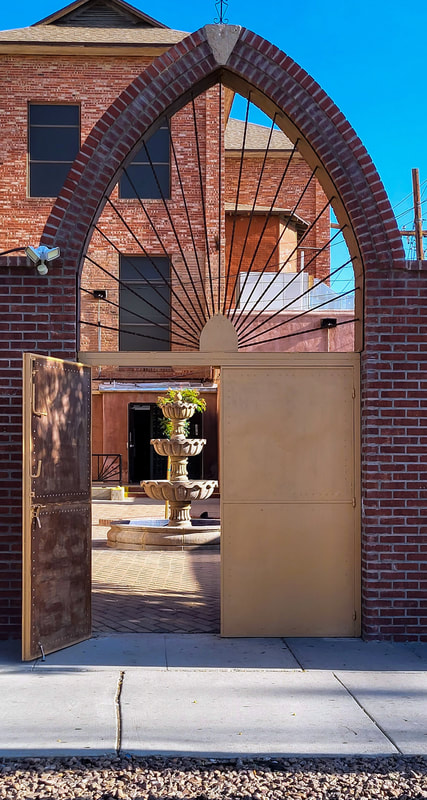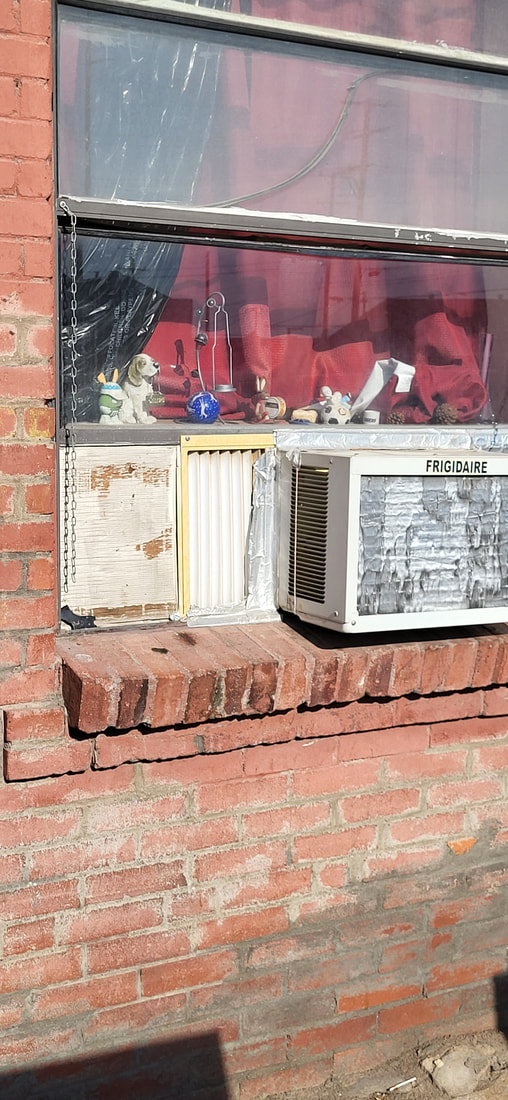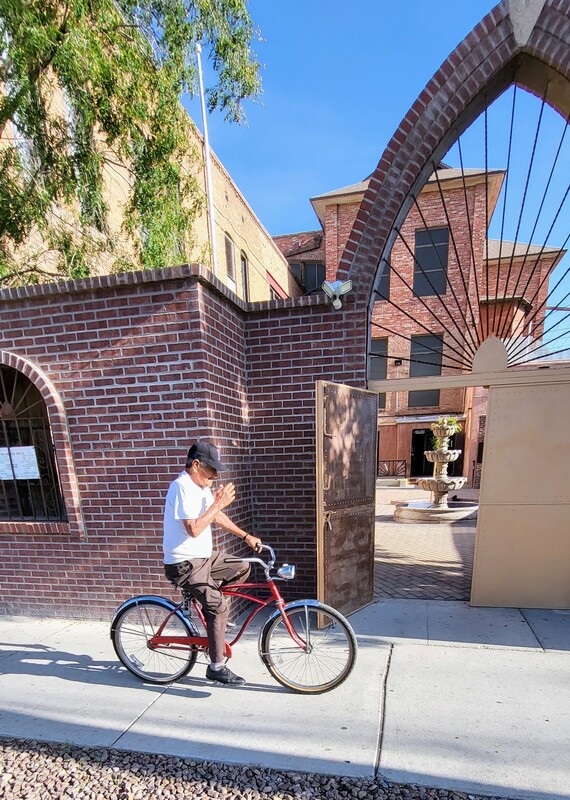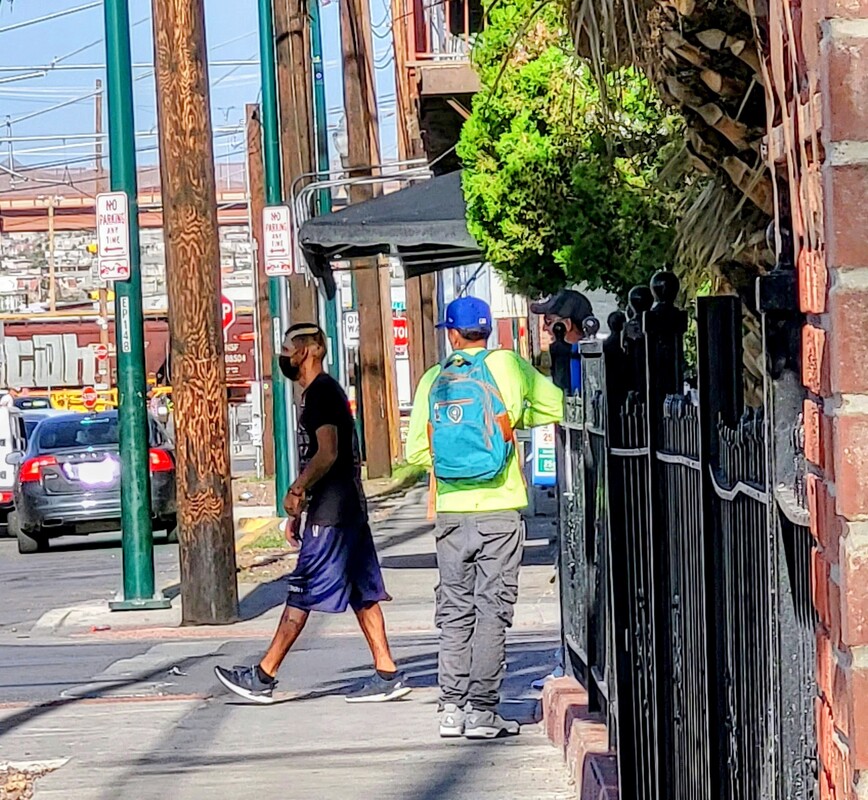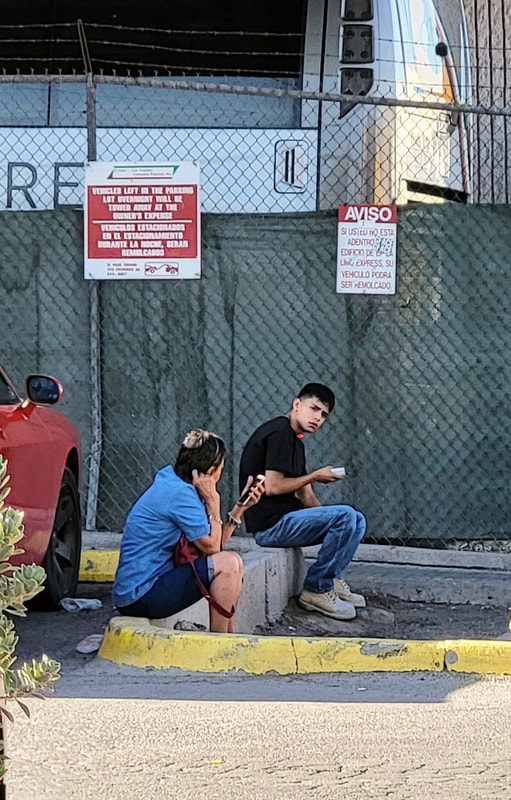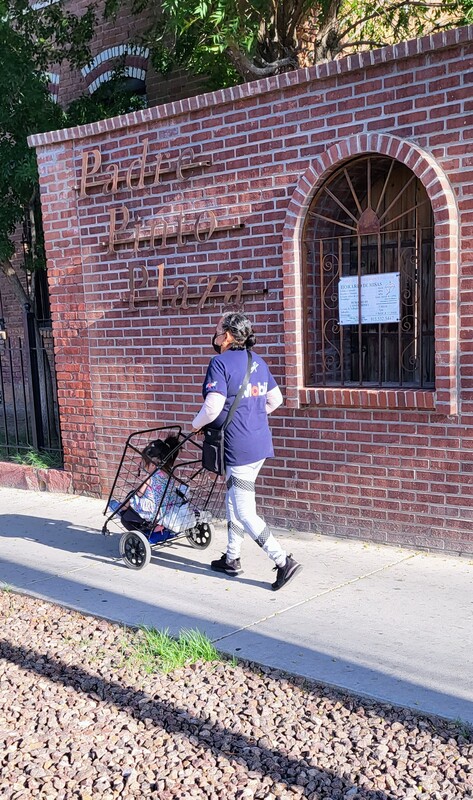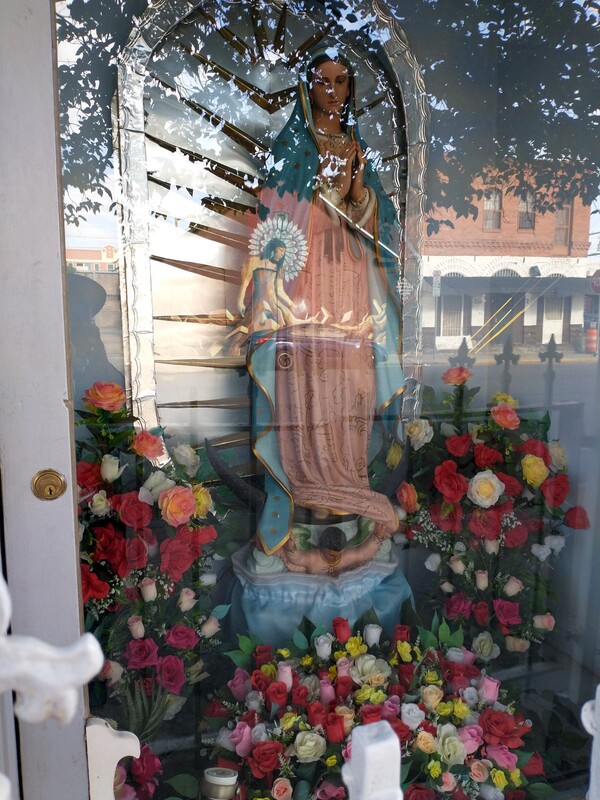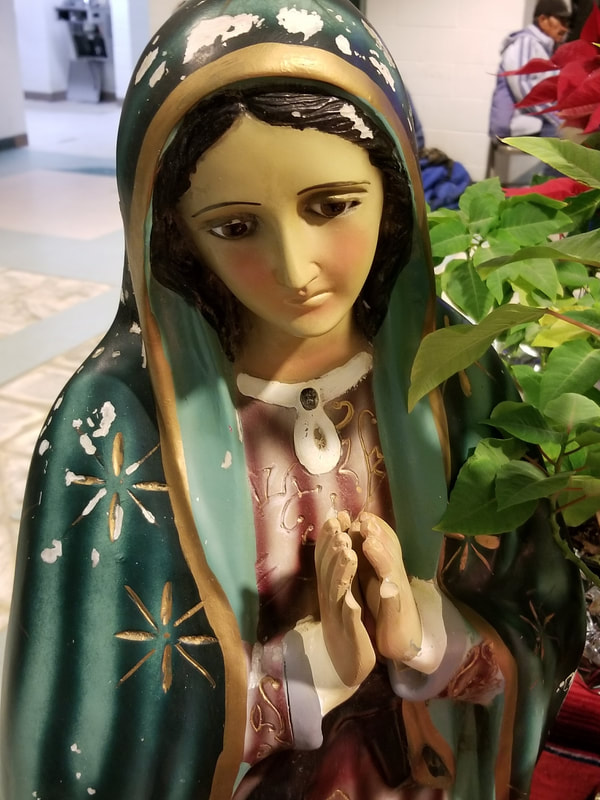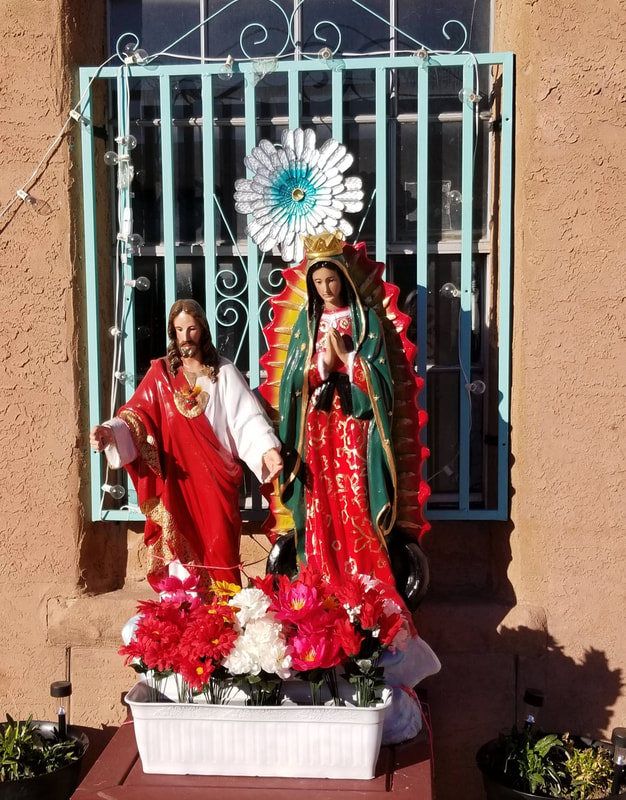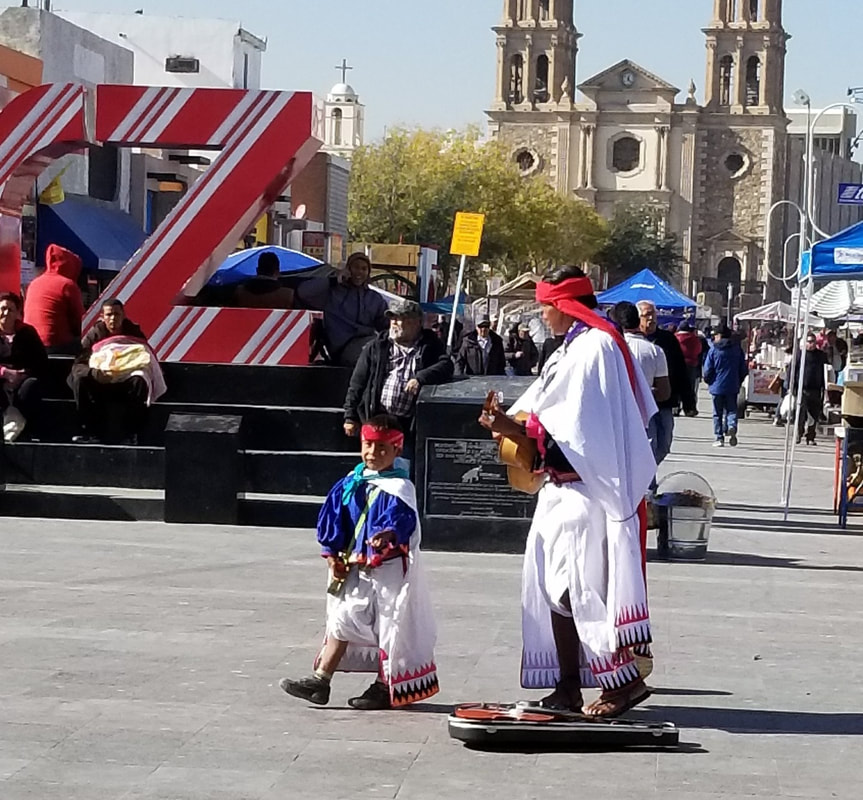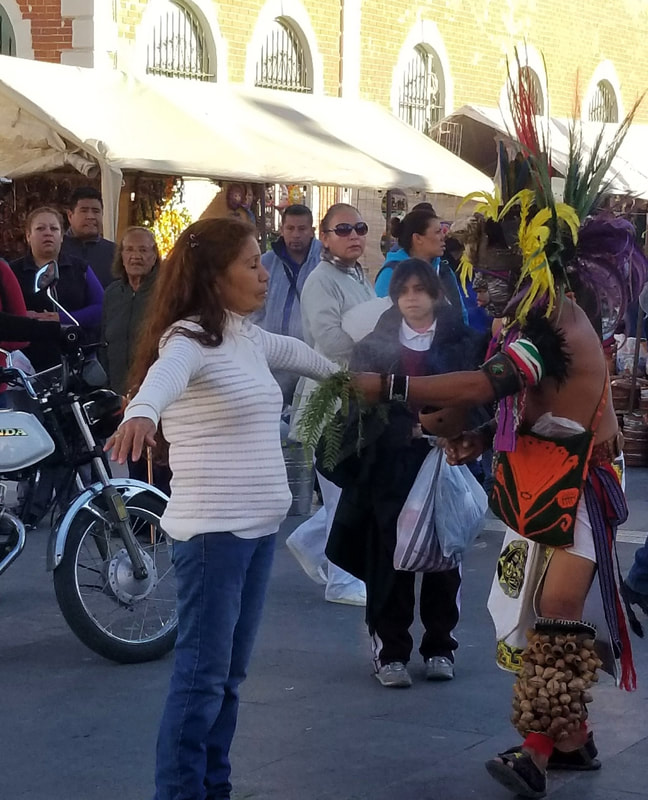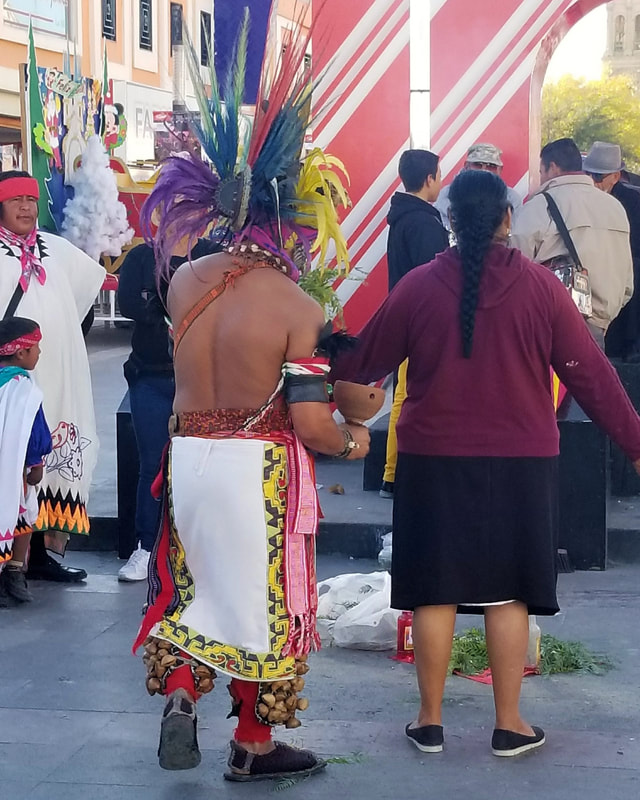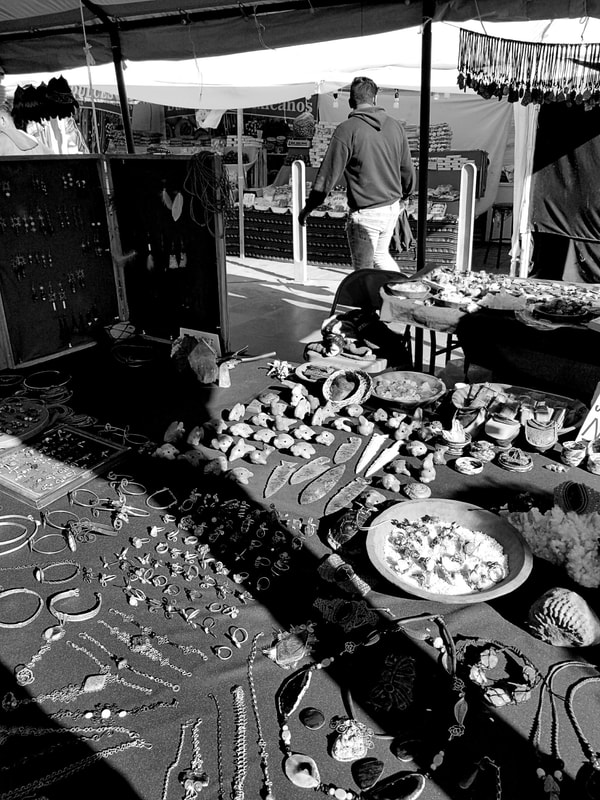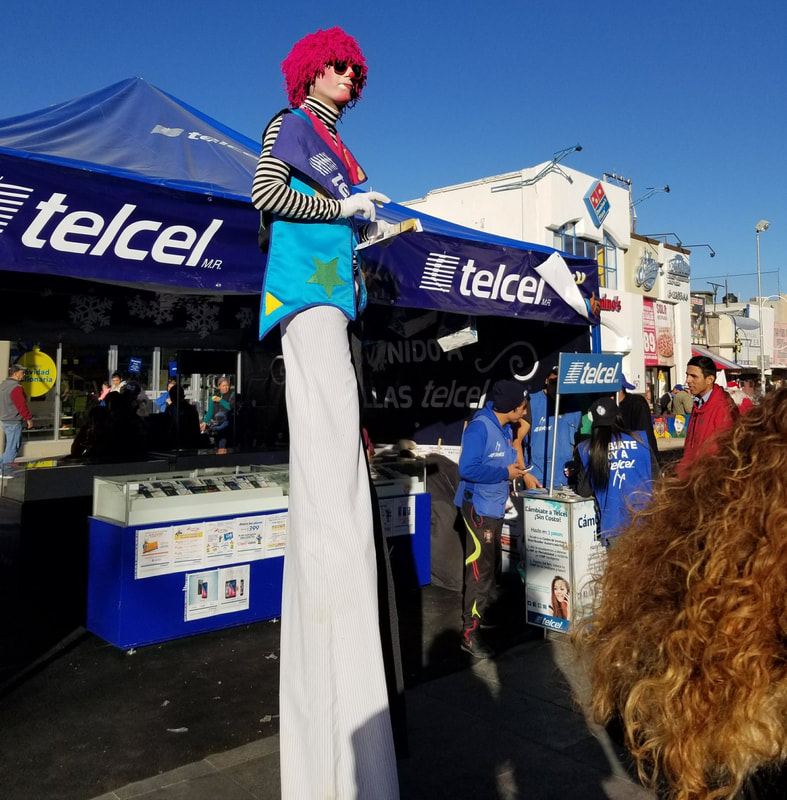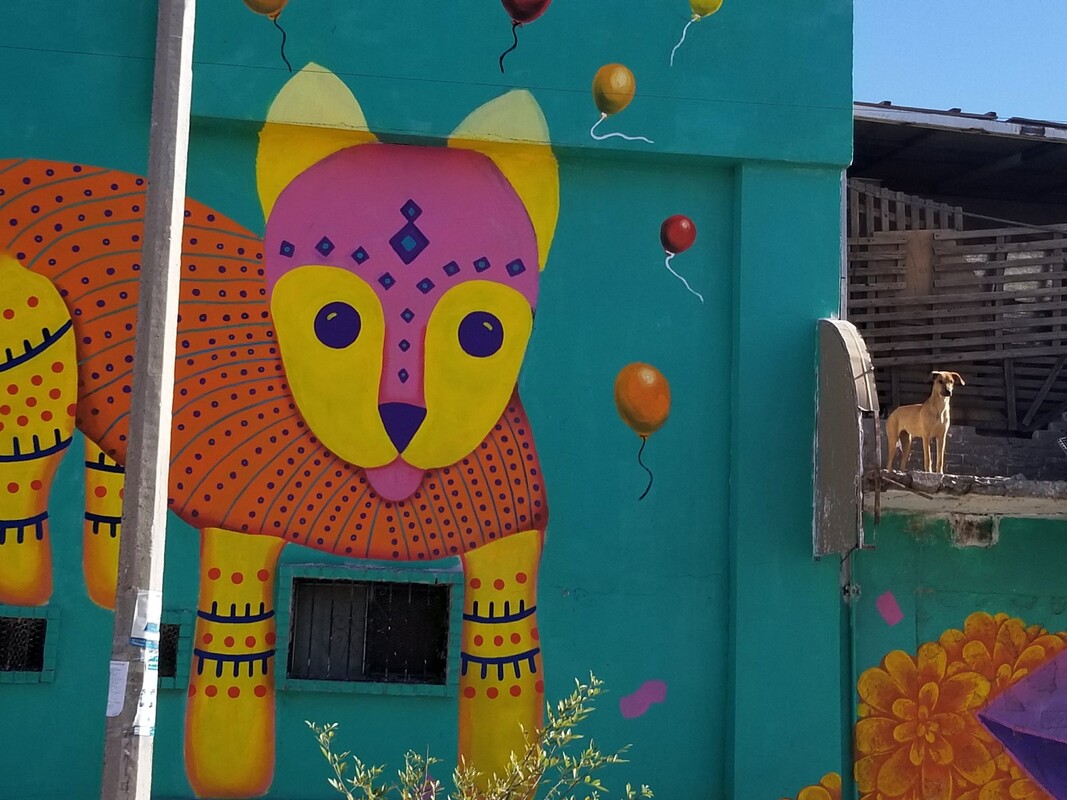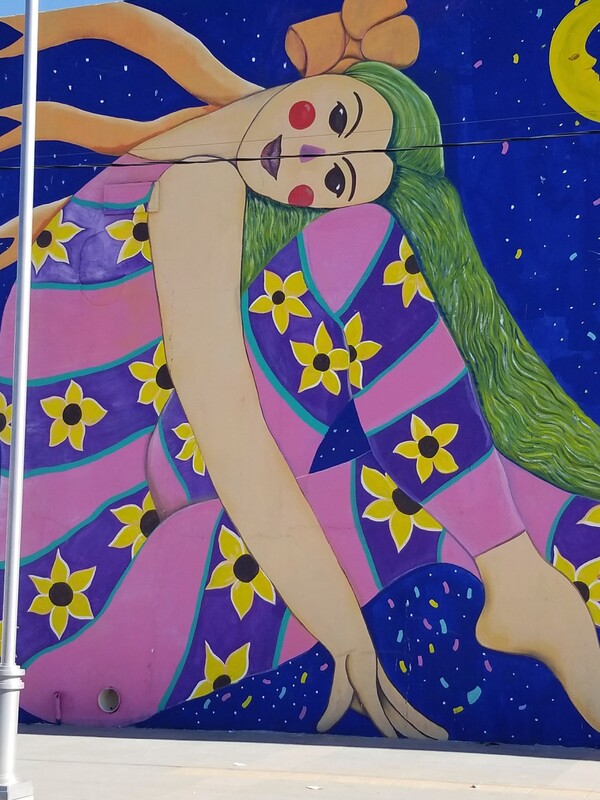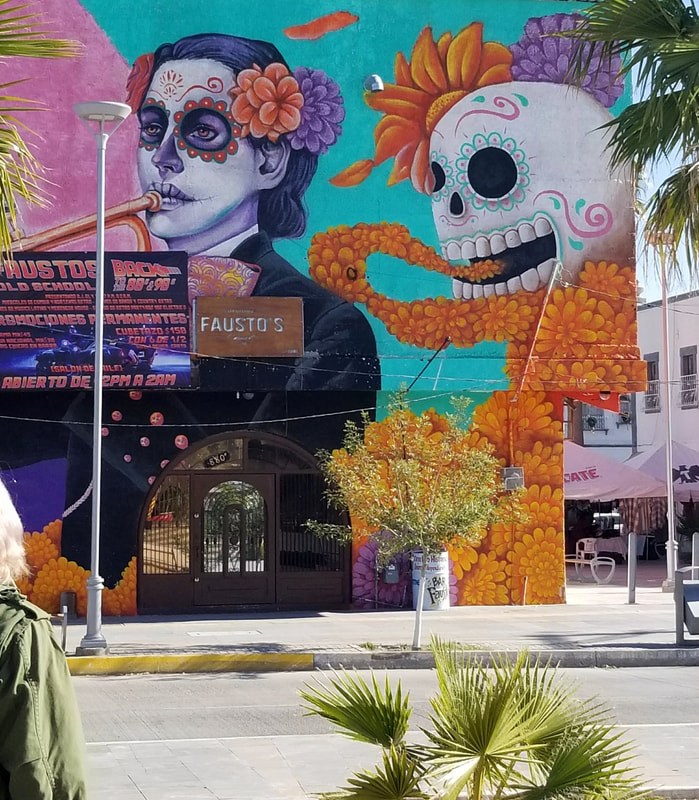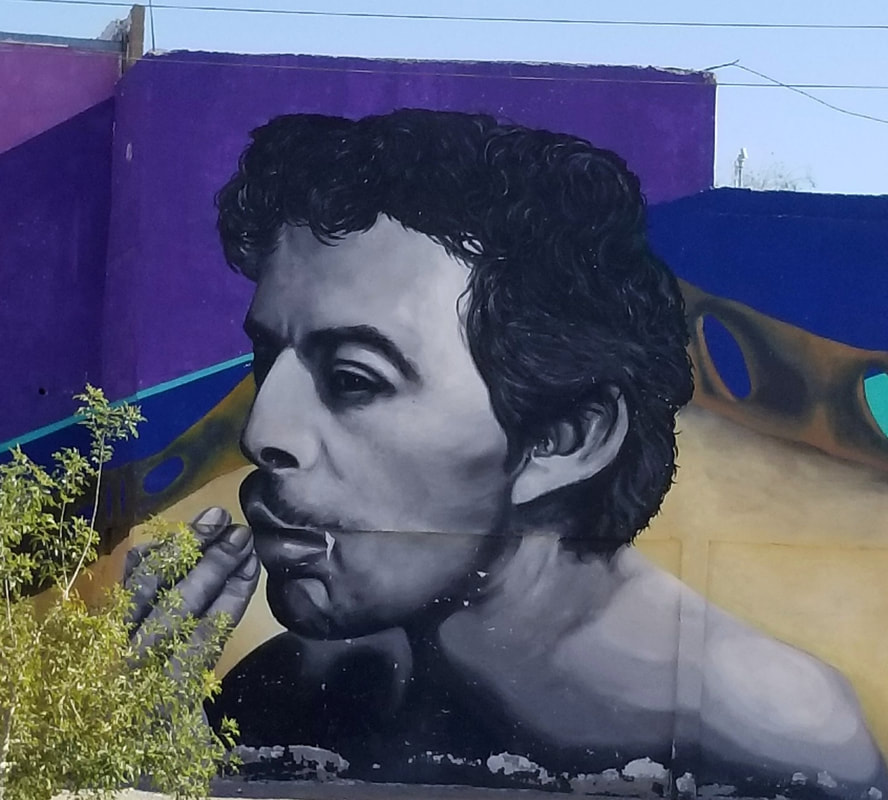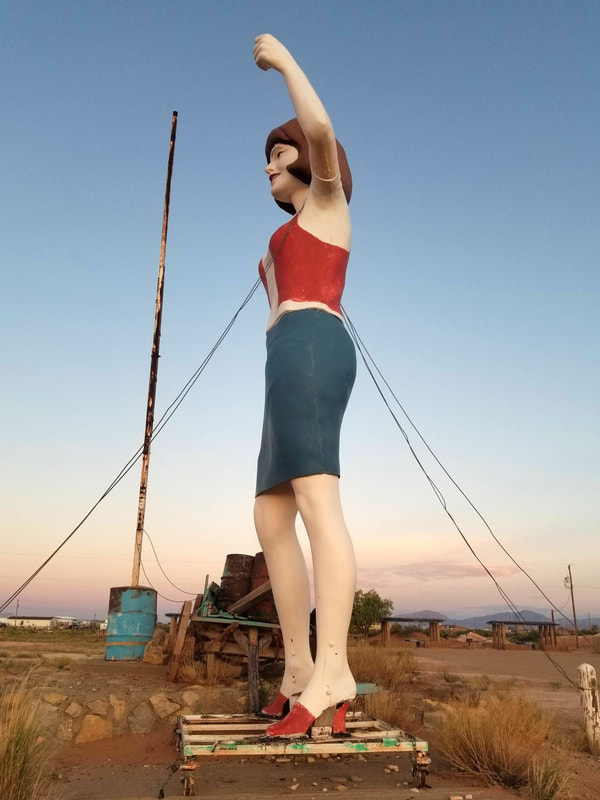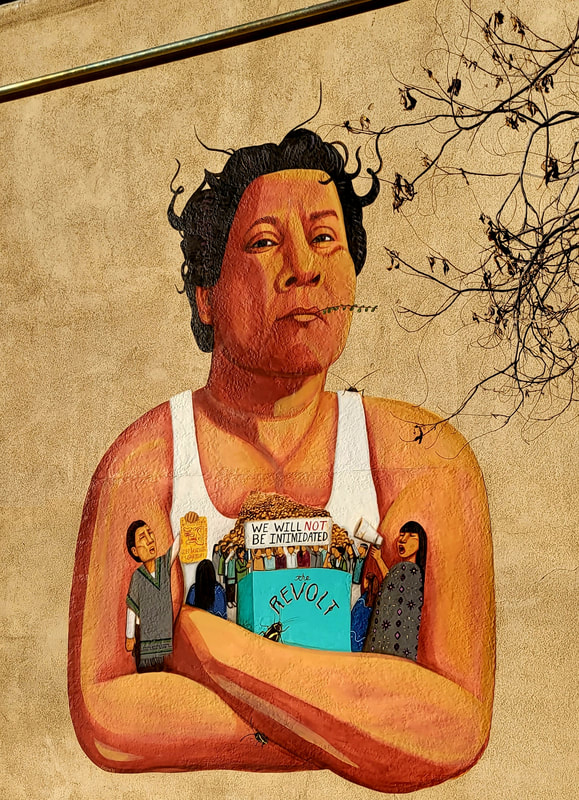Yesterday, a group of us met with a local TV station to discuss their coverage of the demolition of a historic neighborhood in my city that would result in the displacement of a long-time and close-knit community, mostly elders. Three of us, community organizers and historians, accompanied four women from the barrio. They were from their fifties to their eighties. The women were eloquent, witty, and incredible fountains of knowledge about la frontera. Doña Carmen in front of the Civic Center protesting for the right to remain in her home, 2006. Señora Lupe at a meeting to defend El Segundo Barrio, 2006. Margarita speaking on behalf of her small business, 2006.As I enter my elderhood, these women are my guides, my heroes. They have raised generations of children. They have worked long hours inside and outside their homes. Their work has built this city. They have spoken in defense of their homes and their communities. I've seen them work an 8 hour day and then walk miles to their second job. I've seen them go house to house to talk to neighbors, organizing the neighborhood. I've listened to the stories of how they have spent years making their barrios safe and tranquil places to live. And they can still tell a joke and dance and laugh. They have hope and they take action. No, Mr. TV Station Man. We are not cute. We are fierce. 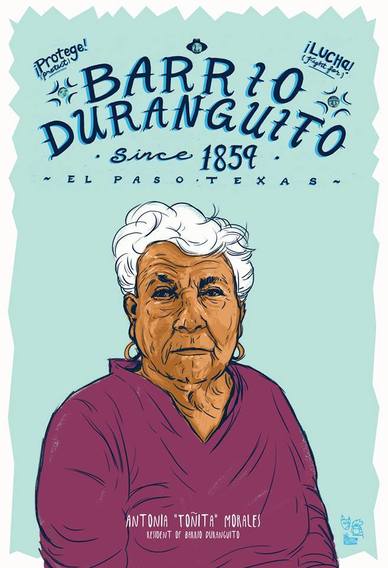 Doña Toñita, la abuela del barrio. Photographs courtesy of Lucia Martinez and Paso del Sur. Thanks to Zeke Peña and Los Dos for use of the Duranguito poster.
1 Comment
Simon Patchin
4/1/2021 02:34:57 pm
I was married for 16 years to a loving wife and mother. We had 2 children together who are now 11 & 13. I reconnected with an old girlfriend from college on Facebook and we began an affair and I left my wife. The woman I had an affair with is a wonderful woman and I love her too and our kids had begun accepting the situation and my wife has kind of moved on, but not in love with the man she is seeing. I thought I fell out of love with my wife and I felt terrible about what I did to her - she is a good woman and I don't know what came over me. I decided to try and get her back and I was recommended to Lord Zakuza for help to get reunited with my wife and within 48 hours after I made contact with Lord Zakuza my wife decided to work things out with me and now we are back together with our children living as one happy family. I really don't know the words to use in appreciation of what Lord Zakuza did for me but I will say thank you sir for reuniting I and my family back. For those in trying times with their marriages or relationship can WhatsApp Lord Zakuza for help or text with this number +1 (740) 573-9483 or you can send him an email to [email protected]
Reply
Leave a Reply. |
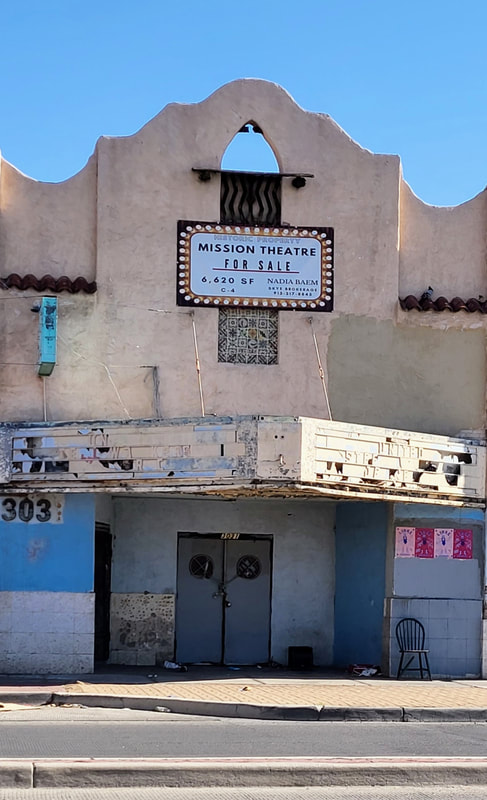
My father used to tell me about sneaking into this theater to watch movies as a kid in the 1910s. It showed Spanish language films. In the 1940s, it was transformed into a "whites only" theater but that didn't last long. By the 1950s, it was headquarters to the Mine, Mill, and Smelter Workers Union, a radical labor organization. Before it closed, it housed the Mine and Mill Bar.
Segundo Barrio
Father Rahm Street
July 2022
La Virgensita en la frontera
Cd Juarez downtown
December 2017
La Mariscal, Ciudad Juarez, 2017
Montana Vista 2019
El Centro July 2022
